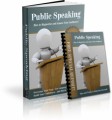Salespage Snapshot

PLR Ebook Table Of Contents
1. The BEFORE – setting the stage, Prologue 4
Introduction
Themes and drama
Dramatic or non-dramatic
The routine of composition
Dramatis personae
2. Beginning things right – the foundation and building blocks of drama 23
Where it all starts – the point of attack: Shakespeare and Ibsen
Exposition
The first act
“Curiosity” and “Interest”
Foreshadowing vs forestalling
3. Keeping the Pace and Interest: The Main Body, Middle and Unfolding drama 32
Tension and it’s suspension
Preparation: The finger-post
The obligatory scene
The peripety (about-turn)
Probability, change and coincidence
Logic
Keeping a secret
4. Ending things on a good and high note – The essentials of a Drama Ending 45
Climax and Anticlimax
Conversion
Blind-alley themes … and others
The full close
5. Afterthoughts and Final Words – The Epilogue 51
Character and psychology
Dialogue and details
Conclusion 56
THEATRE AND PLAYWRITING GLOSSARY and Links 57-64
Sample Content Preview
1. The BEFORE – setting the stage, Prologue
1.1 Introduction
The aim of this guide is to provide would-be dramatists with some systematic advice and guidance in a plain and practical way. Many existing books are more aimed at guiding the judgment of the critic in writing review columns, rather than stimulating and developing the creative impulse of the playwright.
No absolute rules exist for writing a play – much of the writing guidelines are just common sense. It would be easier to make a list of dangers to avoid – some are obvious, and others are perhaps questionable, but doing so may be too much of a negative approach. For example, the play should not be too lengthy in duration, and characters should rather not be narrating their circumstances or expounding their motives in speeches addressed to the audience or to themselves. Some dramatic openings, however, remain so striking and timeless, like Richard Plantagenet limping down the empty stage to say:
“Now is the winter of our discontent
Made glorious summer by this sun of York;
And all the clouds that lour’d upon our house
In the deep bosom of the ocean buried”
Aristotle did draw some guidelines from the practices of the Attic dramatists, as did Horace from the Alexandrians. There seem to be a constant demand for textbooks on the subject of the art and craft of creating a drama. Ironically, many of the authors of such books have never written a play themselves, but are eager to tell others how. Stranger still, is that so many potential writers want to learn from these authors since they are convinced that the fine art of dramatic fiction can and need to be taught.
Drama differs from novel writing in the sense that it needs to run through the highly complex mechanism of the theatre before it can have it’s intended impact on the audience. To fledgling playwrights this world represents a fascinating mystery. Fairly few had the privilege or opportunity to closely get to know or experiment with this new environment. The obvious solution to gain knowledge is to “read up” on the subject. They may feel an inward conviction of their ability to eventually master this mysterious world, but often has neither developed an instinctive sense about the theatre, nor an understanding of the technical difficulties, limitations or possibilities inherent to an on stage presentation. The functionality of theoretical instruction is often overrated, and the novice playwright may find him or herself in a confusing tug of war between theoretical pedantic principles that may be out of touch with the practical realities of today’s theatre, and practices aimed solely at the benefit at the box-office, therefore sacrificing knowledge, quality and often cutting corners in many ways.
The challenge therefore is to expose the novice just enough to the practical theatre life to learn enough about the conditions, mechanisms and possibilities, but to avoid over exposure to the conventional theatrical trade in order to preserve his or her originality of vision, creativity and individuality of method.
Other Details* Sales Page: Included, HTML, MS Word Doc
* File Format: MS Word Doc, PDF
* Number of Pages: 65
* Included Graphics: Ecovers, PSD
* Extras: 5 Part Autoresponder Email Message Series
* Download File Size: 7,361 KB














